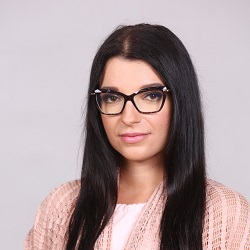Collegium Civitas
Collegium Civitas
Pałac Kultury i Nauki,
plac Defilad 1,
00-901 Warszawa
Our website:
Collegium Civitas is a modern non-state university located in the heart of Warsaw. Collegium Civitas was established in 1997 with the initiative of a group of well-known scientists of the Polish Academy of Science, the most prestigious Polish educational and institution. Experience and commitment of its founders and faculty members have earned it a reputation of the best place to study international, social and political science in Polish and English. Collegium Civitas conducts research in a broad social and political science field.
Collegium Civitas is the first non-public university in Poland open to new and rewarding inventions in higher education: interdisciplinary approaches, closer lecturer-student relations, study abroad programs, internships, and the encouragement and supervision of individual student research projects. Due to mutual efforts of our founders, lecturers and students Collegium Civitas has grown into a true 21st century university.
Our university is open to the exchange of ideas, to public debate and discourse, and has a broad minded outlook in a complex world. Collegium Civitas is a broad community with many diverse strands. We follow the principles of social responsibility of education and science and respect the dignity of each individual who chooses to become part of our community.
The mission of Collegium Civitas is to create a dynamic and stimulating multigenerational and international academic environment in order to educate and nurture future leaders both in Poland and abroad; leaders in civil society, in business and the economy, in politics and the media and many other fields.
Profile of key people

Marek Troszynski, PhD,
Head of the Observatory of the Digital Civilization at Collegium Civitas, Warsaw; Lecturer at the Polish–Japanese Academy of Information Technology. He is also the president of the Local Knowledge Foundation – a non-governmental organization that aims to support local government and other organizations by providing comprehensive solutions in the field of social research and in-depth analysis. As a sociologist, he deals with describing the social consequences of the digitization of culture and the use of methods of Natural Language Processing in sociological research on discourse.
E-mail: Show addres e-mailmarek.troszynski@civitas.edu.pl
Magdalena El Ghamari, Ph.D.
Assistance Professor at the Collegium Civitas University, Head of Cultural Security Department and an analyst at the Institute for the Study of Terrorism. Member of the European Security Association Decision of the Association of Veterans in UN Peacekeeping Missions. She completed doctoral studies in the Department of Joint Action National Defence Academy. Doctoral dissertation entitled „Interculturalism in crisis response operations”, completed in the area of defense sciences, specializing in strategy and operations. She opened a second Ph.D. at the National Academy of Sciences. Currently conducting research related to radicalization, migration and refugees in Europe (the case of the MENA region (with a focus on Kosovo, Albania, Macedonia, Montenegro, Bosnia and Herzegovina) Research interests: MENA region (Libya), threats to international security, terrorism, fundamentalism, cross cultural awareness, the Balkans, interculturalism, NATO operations, military.